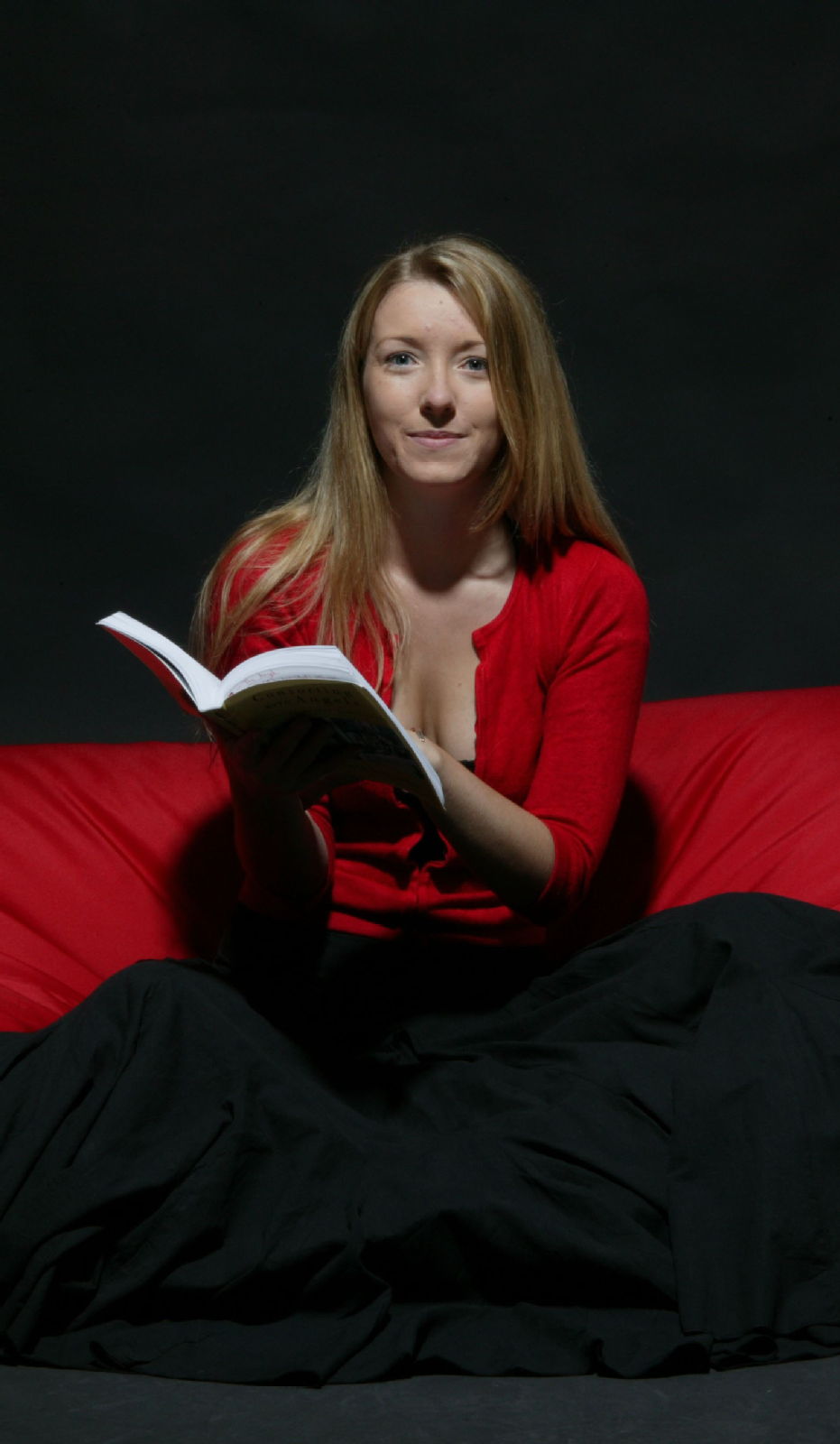Self-portrait as Woman and Parasol
Zoë Brigley performs 'Self-portrait as Woman and Parasol' |
|
"'Self-portrait as Woman and Parasol’ explores freedom, sexuality and our relationship with place," explains Zoë. "Can we still feel the kind of sublime awe that the Romantics described when encountering wild spaces? This poem suggests that we can, and one place described is the ruined Medieval manor, Guy’s Cliffe House, just outside Warwick. The poem asks us not to sabotage these sublime moments, but to pursue them."
Speaking about her Warwick module, 'The Practice of Poetry', Zoë says, "What I remember most was the joy of discovery. It felt as though we were starting out on a journey full of gorgeous sights and wonders. I always loved writing, but working with other writers, having that sense of camaraderie was something I will never forget. I owe so much to my tutors on that course, David Morley and Peter Blegvad. Both did not merely present and analyse the poets we read, but illuminated and enlivened the printed word, and they made us feel that we could find something unique and extraordinary in our own writing. As a grad student at Warwick, I had a chance to teach on the Practice of Poetry module with David Morley, and his guidance on teaching still inspires me today."
Self-portrait as Woman and Parasol
I have only felt it in a few places I visited -
always in summer - and it never lasted too long.

Once in Appalachia, that day at the marsh:
the hot wind turning, raking the spike rushes;
bees dozing, zipping over bare arms;
the wind falling like a sigh, a great weight
lifting from me; and the gorgeous stems
of goldenrod growing up into the light,
bright as an aria. A deep longing for closeness
in the lips of flowers, like that summer
would drive me crazy for an old freshness.
Finding those places is like undressing:
the first touch of me to you, and slowly walking
through long grass is wading in a pond naked.
Once in the ruins of Dunraven Castle, high up
on the cliffs, where the light met me, palpable
and taut as skin. Above the dizzying sweep,
my stomach fell like a long drop into the sea.
And today in Warwick, the bronzed stubble
of a mown cornfield offers a yellow-brick road.
Beyond is the square tower of St John the Great,
and at top a weathercock, twisting one way
or another in the breeze. A river of nettles,
sore and toothed, covers the banks of the Avon,
and above it all the socket windows of Guy’s Cliffe House.
Do you recall the sketch of that river in the 1700s:
the long, trimmed lawn down to the water’s edge?
Rich women perch on chairs, milady lounging
on a rowboat with nothing to do, but sit back
and be punted along a lazy summer afternoon.
One woman, lying across a boat, looks down
into the black river: the water so still
that the lily pads seem to be fixed in glass.
The parasol from her hand is put aside
so the sun falls on her face and neck,
her throat and wrists. One hand breaks
the surface with a touch of something
silken and wet and delicious.
How gorgeous must the sensation be
on a body that never wore a mini-skirt or bikini
in the sun: how lovely the light breaking
on freckling skin. And how hard it is too
to force her hand up and lift the parasol again.
Zoë Brigley (Thompson) is a poet and writer, and is currently a Visiting Assistant Professor at the Ohio State University in the United States. She has published two collections of poetry The Secret and Conquest, both from Bloodaxe, and both were Poetry Book Society Recommendations. She also researches gender, sexuality and violence and edited the Routledge volume, Feminism, Literature and Rape Narratives.
